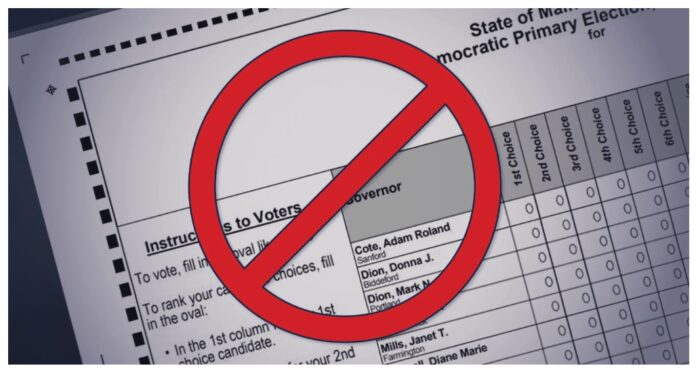Last week, the governor of North Dakota signed into law a ban on the use of ranked-choice voting in state elections.
North Dakota is now the 15th state to disallow the practice, which is used in Alaska elections after a 2020 ballot initiative passed with the backing of tens of millions of dollars in outside dark money.
“Now more than ever, we need a consistent, efficient and easy-to-understand voter experience across our entire state to maintain trust in our election system,” Gov. Kelly Armstrong said. “This is one more in a series of proactive, common-sense steps our Secretary of State and Legislature have taken to support election integrity.”
As a second attempt at repealing ranked-choice voting is under way in Alaska, here are the 15 states that have banned the novel voting system that was created by liberals to help Sen. Lisa Murkowski keep her seat in the Senate:
- Alabama
- Florida
- Idaho
- Kentucky
- Louisiana
- Mississippi
- Missouri
- Montana
- North Dakota
- Oklahoma
- South Carolina
- South Dakota
- Tennessee
- West Virginia
- Wyoming
North Dakota, West Virginia, and Wyoming are the latest additions, with their bans signed into law this year. Only three states — Alaska, Hawaii, and Maine — use ranked choice voting, as does the District of Columbia.
In Alaska, the petition to repeal RCV and jungle primaries was certified on Feb. 17, allowing sponsors one year to collect over 34,000 signatures for a 2026 ballot measure. To get on the 2026 primary ballot or general election ballot depends on when the Legislature adjourns in 2026.
To get onto the 2028 ballot, the group has until the first week of March, 2026 to turn in the needed signatures.
The new Alaska effort, Repeal Now, follows the narrow defeat of the first repeal effort in November, which lost by just 743 votes, despite millions of dollars in dark money from liberal entities outside the state fighting to convince Alaskans that ranked-choice voting gives them better results.
The two main political parties in Alaska are split on the voting method, with the Alaska Democratic Party supporting it and the Alaska Republican Party opposed.
